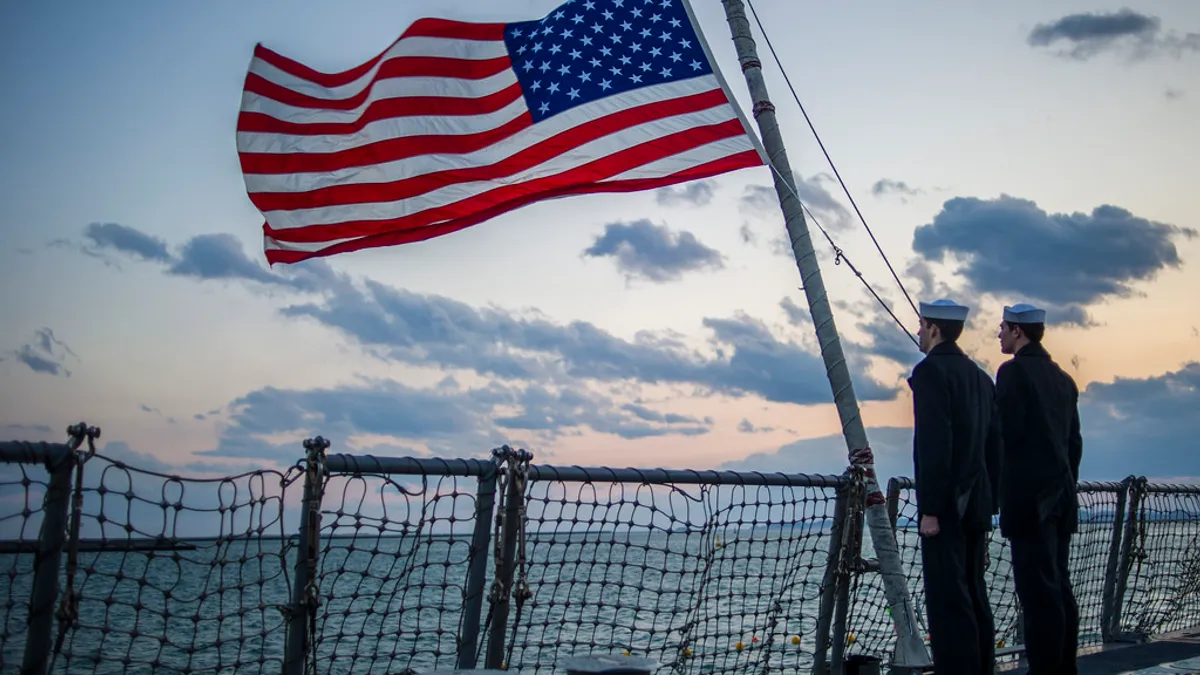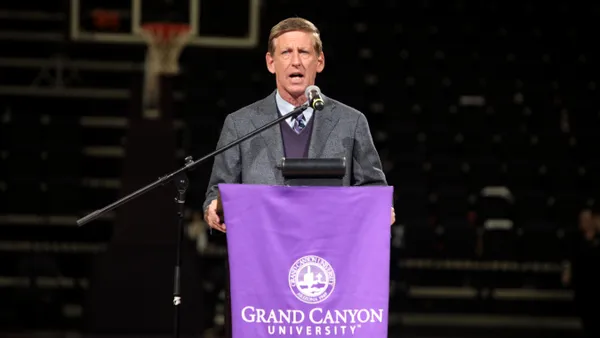Dive Brief:
- Thirty-six advocacy groups sent a letter to the head of Veterans Affairs (VA) this month urging the department to increase oversight of postsecondary education programs that are approved for GI benefits.
- The groups — which include the American Legion, Blue Star Families and AMVETS — cited concerns over a recent audit by the VA Office of Inspector General that estimated the department will waste $2.3 billion over the next five years by making improper GI Bill payments, including to colleges with potentially fraudulent practices.
- The letter singled out Career Education Corporation, a for-profit college operator that has been widely accused of misleading students, as an example of an institution that has received improper payments. Career Education has the third-highest number of veteran complaints against it at the VA, according to the letter.
Dive Insight:
The audit, which looked into state agencies in charge of program approvals, raised fresh concerns over the misuse of GI Bill benefits, especially at for-profit colleges.
The probe found the agencies didn't always adequately review and monitor programs to ensure they met requirements for GI Bill benefits. Additionally, the auditors found the "risk of improper payments was particularly high at for-profit schools." Out of 35 programs flagged for being either "ineligible or potentially ineligible" for GI benefits, 83% were at for-profits.
Critics of for-profits note the embattled sector targets veterans because of a loophole in the 90/10 rule, which prevents the colleges from receiving more than 90% of their revenue from federal financial aid. However, tuition payments from GI benefits don't fall under the rule.
As a result, veterans using their GI benefits are overrepresented at for-profit colleges, which often have lower graduation rates.
Despite heightened scrutiny over for-profits, the U.S. Department of Education has made several moves to ease regulations governing the sector. For instance, Education Secretary Betsy DeVos has moved to roll back the gainful employment and borrower defense rules, two Obama-era regulations that some say helped shield veterans from predatory schools.
The move sparked objections from dozens of veterans advocacy groups.
"[S]ervice members, veterans, and their families and survivors are specifically targeted for fraud and seen 'as nothing more than dollar signs in uniform' by unscrupulous colleges," several groups wrote in a letter urging the Ed Department to strengthen the two regulations. "Often, the lowest quality education programs are those that engage in the most consumer fraud of veterans."
Meanwhile, only 10% of veterans who use their GI Bill benefits attend a high-gradation-rate institution even though they tend to perform better and graduate at higher rates, a recent Ithaka S+R report found. That's compared to 21% of all students who attend those institutions. To attract more student veterans, the report recommends colleges simplify the process for transferring credits; increase campus supports; and consider the value of military training during the application process.















